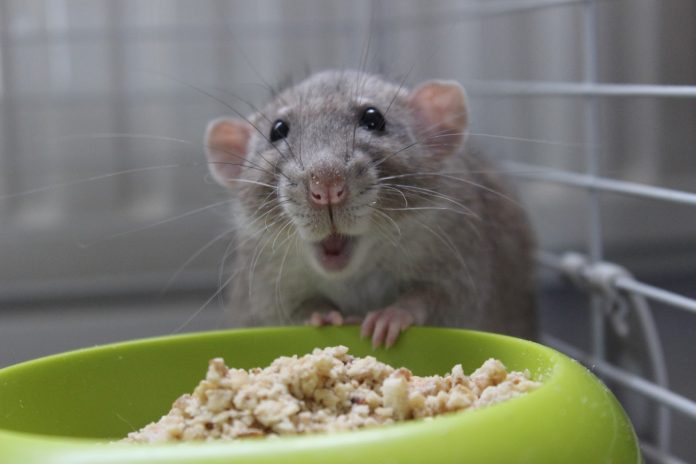
A link has been shown between eating certain types of fat and variations in lab mice’s microbiomes. Given the rise of diet-related human illnesses and the utility of the mouse model for these and the microbiome, this study could pave the way to understanding how these two factors interact.
The study appears in Nature Scientific Reports this week. The lead authors are Jose Martinez-Lomeli and Poonamjot Deol of the University of California, Riverside.
Over the last several decades the average diet in the U.S. has become increasingly high in fat and low in fiber. There has also been a change in the type of fat consumed by Americans. Soybean oil, high in polyunsaturated fat (PUFA), is currently the predominant source of dietary fat.
High fat diets (HFDs) have been linked to several diseases including obesity, diabetes, fatty liver, inflammatory bowel disease (IBD), and colon cancer, in both mice and humans.
These are some of the most prevalent human diseases around the globe. According to the World Health Organization, obesity, for example, has nearly tripled worldwide since 1975. In 2016, more than 1.9 billion adults, 18 years and older, were overweight. And it is estimated that more than half a billion people worldwide have diabetes.
Such fats also impact the gut microbiota, physiological changes in the small intestine, intestinal permeability, and gastrointestinal diseases. However, the researchers write, “Most gene expression studies analyze only one portion of the intestines or one type of HFD at a time and they typically use diets made with saturated animal fat, not plant-based unsaturated oils.”
This team used RNA-seq to examine the impact of three HFDs on gene expression in four segments of the mouse intestinal tract: the duodenum, jejunum, terminal ileum, and proximal colon. Each has a different function: The duodenum breaks down the stomach acid and food mixture. The jejunum absorbs sugars, amino acids, and fatty acids. The terminal ileum absorbs remaining nutrients, and the proximal colon absorbs water and salts and produces short chain fatty acids. All four parts of the intestine have a role in xenobiotic and drug metabolism.
The HFDs used in this study differed from each other only in their fatty acid composition. They included coconut oil (saturated fats), conventional soybean oil (polyunsaturated fats), and genetically modified soybean oil (monounsaturated fats). These HFDs were comparable to the current American diet in that they consisted of 40% of calories from fat and were low in fiber, while most experimental HFDs use 50–60% kcal fat. Each diet was compared to a low fat (13% kcal fat), high-fiber vivarium chow, as well as to each other.
Previous studies had shown the conventional soybean oil diet, and to a lesser extent the modified soybean diet, induced obesity, diabetes, insulin resistance, and fatty liver, while the coconut oil diet had minimal adverse metabolic effects despite similar caloric intake.
The team found that the transcriptomes were primarily grouped based on tissue, with smaller variations observed between dietary groups. But there was “considerable dysregulation” of genes in multiple tissues with the different diets, including those encoding nuclear receptors and genes involved in xenobiotic and drug metabolism, epithelial barrier function, IBD. and colon cancer, as well as genes associated with the microbiome and COVID-19.
They write, “Network analysis shows that genes involved in metabolism tend to be upregulated by the HFDs while genes related to the immune system are downregulated; neurotransmitter signaling was also dysregulated by the HFDs. Genomic sequencing also revealed a microbiome altered by the HFDs.”













